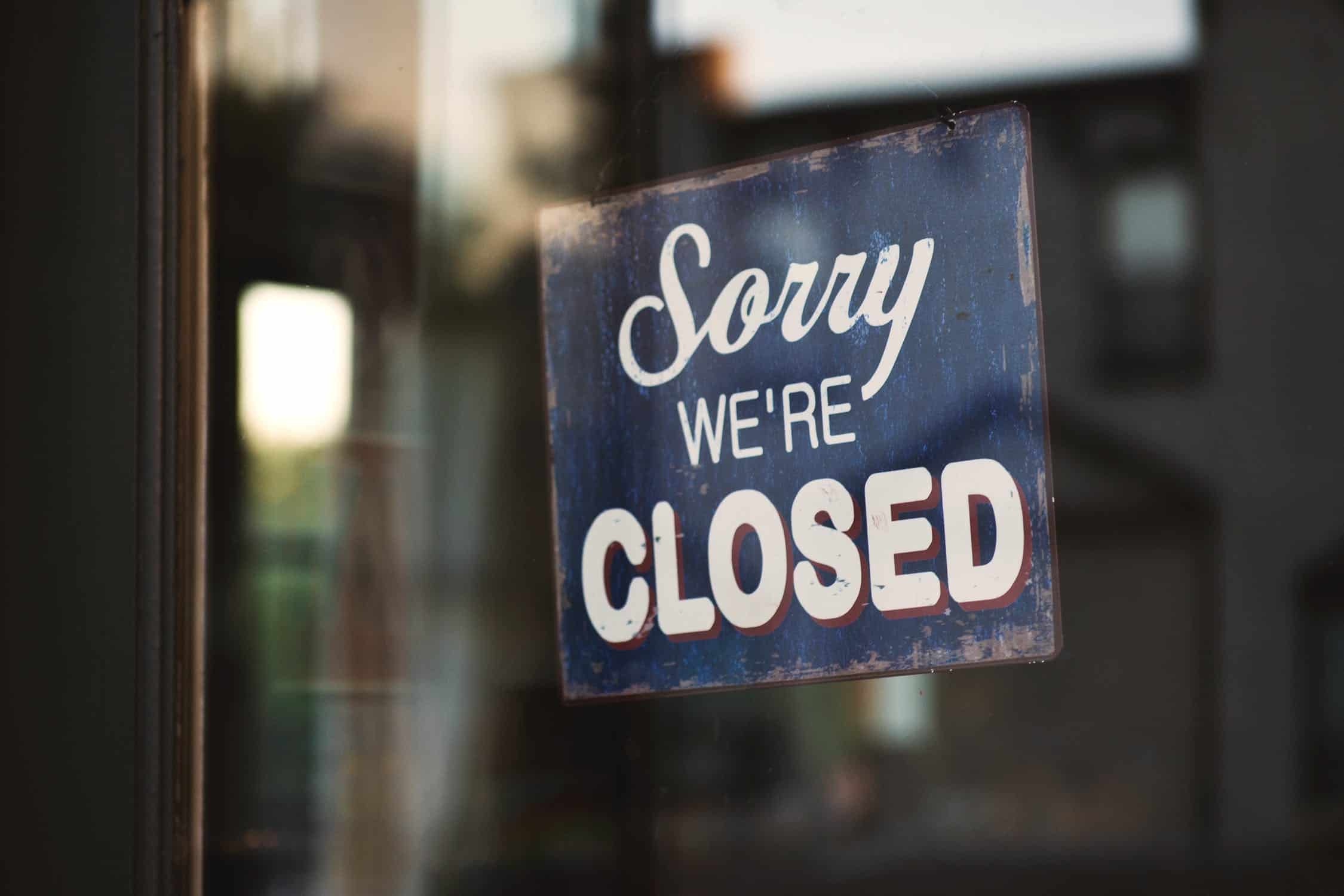Business curveballs come in all shapes and sizes. Some we can prepare for and others, like the Covid19 (aka Coronavirus) pandemic, take us completely by surprise. When businesses and organizations are forced to stop their normal day to day activity and people are staying home to stay safe, how can you stay connected with your customers?
Below we take a look at how you can have a better social media during a crisis.
Keep Customers Updated
During a crisis like a pandemic, some businesses are forced to close whilst others thrive because they happen to have the product or service needed most during the crisis in hand. Albeit with some adjustments, the grocery, digital entertainment, and pharmaceutical industries are thriving as people stay at home and wait for the crisis to pass. Sadly, other businesses including small owner-run business have taken quite a hit.
When your business takes a hit, it can be tempting to go quiet. To stop regular communications until the crisis has passed and to hunker down to lick your wounds. Now is not the time to go quiet. Your customers need you now more than ever. You form part of their normality – something we all crave during a crisis.

Use social media to communicate how your business has been affected. Share your story. If you have had to temporarily close your doors, halt deliveries, or move to remote working then be sure to let your customers know this. Use a tool like Beamible to Implement flexible working consistently, fairly, and compliantly to meet both employee and organizational needs.
Your story matters to your customers and they will want to know how to contact you. Keep the lines of communication open and be certain to respond to all inquiries. If you can only manage one type of communication channel due to reduced staff or hours, then let customers know this through every other communication channel you have.
Since this is social media, you can also connect with customers and followers and interact with their stories. Of course, you can’t respond to every story, but you can choose perhaps a few a day. You could have questions of the day and asking people to share their tips and tricks for handling the crisis, and you may even get a little community building up within your community.
As we’ll go on to discuss below, you can provide help, inspire and motivate people, educate people, and entertain them; all of which will help you connect to your target audiences in a positive way
Consider Your Hashtags
While you’ll already be proactive in making sure the hashtags you use on social media, during a crisis time, like the COVID-19 pandemic or the US riots, you need to be aware that you’re being mindful of your hashtags more than ever before.
Firstly, although it can be tempting to use #blacklivesmatter or #COVID hashtags, most people are only using these to display relevant information about the causes, and if you’re posting and using these hashtags to post about your individual business or to promote content, you could risk facing a major backlash.
With this in mind, instead of just using hashtags because they’re trying, try to use relevant tags and only use similar hashtags if you’re providing information that can benefit everybody.
Create a Policy for All to Follow
Whether you’re managing your social media pages yourself, or you have a small team you’re working with, it can pay off to create a social media policy that can help get everybody related to managing your pages on the same page during a crisis situation. This policy will describe the dos and don’ts of posting, what your employees can talk about, and how your pages are going to proceed.
For example, how is your company going to deal with copyrighted material? During a pandemic situation, and any kind of crisis, a lot of content is created by third parties that could display really helpful information that can help people out, but is this information copyrighted, and can you post it to your own channels?
Stealing and reposting content or not attributing the content properly to a source could leave you in a lot of trouble. You’ll also want to think about privacy and confidentiality guidelines you may want to implement. Are your employees allowed to talk about your business on their personal profiles, or what is restricted? How will this be enforced?
Finally, you’ll want to think about the online voicing of your business and brand. Can you keep the formal conversation you have already, or do you need to switch things up a bit. You may have a goofy, casual brand, but when you’re talking about something serious, like a pandemic, are you able to keep this up, or do you want to be seen as being more serious?
Move Online
There is an opportunity in a crisis to create and grow brand sentiment through social media. Being forced to stay home and self-isolate is creating more online traffic than ever before. Video conferencing and webinar tool Zoom has reported an increase from 10 million daily meeting participants pre-Covid 19 to 200 million daily participants during March 2020 alone.

Many businesses like gyms that have been forced to close and instead are sharing free and paid training sessions online using Facebook, YouTube, and Instagram Live. Likewise, other businesses are offering cookery lessons, styling tips and more.
A corporate business might consider offering discounted or free webinars to share their expertise on how to strategize during a business, how to manage business finances or keep employees engaged. “There is an opportunity here that businesses may have never considered before. We have the technology to easily move online and audiences hungry to learn during lockdown”, says, Dale Kennedy a tech blogger at Assignment Help and State Of Writing.
With a decent smartphone and a little imagination, social media makes sharing this kind of content easier than ever. If you plan to use online content to create cashflow then use social media to let your audience know about your webinars and classes. Be clear on when they will take place, how to join and how to pay.
Be Helpful
This is a time when communities are pulling together to protect vulnerable community members and help flatten the curve. As a business, you have an opportunity to support your local, online and, customer communities by supporting official messaging and encouraging social distancing.

Consider using your social media channels to share your own content to reinforce the message to stay safe and keep up social distancing. This could be in the form of a video of you or your staff members reinforcing the message. Or perhaps you know a health care professional who would be willing to share their story of working in the crisis to help you encourage people to stay home.
Get the Tone Right
No matter what your brand persona is, be it formal and corporate, edgy, or fun, in a crisis it needs to reflect the needs of your customers and community. During a crisis, people are drawn to positive and reassuring messaging. “The tone online has changed considerably across all channels during the current outbreak”, says, Rachel Bedford business writer at Dissertation Services and Simple Grad. “For the most part, brands are pushing sales and products less and encouraging health and mental wellbeing more”.
Adjusting your tone need not be a drastic change. Instead, incorporate the positive messaging into your brand. To achieve this, some businesses choose to share advice or inspiring quotes and stories but present them in their brand style. You might also consider sharing your own experiences from relatable situations in your life. A great example of this is astronaut Chris Hadfield who has been sharing tips on how to cope during isolation based on his experience of spending 166 days in space. A less extreme example is dancer Derek Hough who is using Tik Tok and Instagram to share how he has used art to cope with isolation when he has been injured and unable to leave the house.
How you use your social media channels during a crisis need only be temporary. It is a detour from your regular strategy which you should return to when the crisis has passed. At that time, review your social media strategy to apply lessons learned from during the crisis and to add in the segway from crisis communications to returning to normal. You never know, offering a different tone or online resource may just open up new opportunities.
Managing Your Brand Crisis
While crisis happen all over the world, sometimes it’s your own business which can end up having a crisis of its own. Using techniques known as social listening, you should be able to spot a potential crisis before it actually becomes a crisis. This takes a bit of skill and a bit of savvy with social media, but it’s not impossible for anyone to pick up.
A simple example is that your food business has released a new line of ready meals, but in the ready meals, someone has discovered some plastic and now several batches need to be recalled. This could be a brand’s worst nightmare, and there’s escaping the fact it’s probably going to end up on social media and will need to be dealt with fast and properly.

What you do is head over to social media, a platform such as Twitter, and you keep an eye open for posts or trends that are gaining a lot of activity surrounding your business. You can also use your social sentiment analytic to judge quickly and accurately how people are referring to and feel about your business.
There are plenty of software applications and platforms out there that can help you track this figure, and you can even receive custom alerts that can notify you well in advance for when something needs to be sorted out quickly.
When something is happening and a potential crisis is unfolding, more often than not, you’re going to need to respond quickly. Remember, social media movements can devastate businesses, even more so when they’re ignored by the companies they’re addressing, so be fair, truthful, and try to be as understanding as possible.
Don’t Forget Security
Especially with the COVID-19 pandemic, the chances are a lot of your team has been in locked down, and you’ve authorized the team to remote work. This has been extremely popular over the last few months, and it’s almost guaranteed that more businesses than ever before will keep remote working procedures within their business after this specific crisis is over.
However, it’s important that security is maintained at all areas concerned. Let’s say someone is sat working at home and they have sensitive client, business, and customer information open on their computer. They step away from the computer to answer the phone. What are the risks here?
Well, aside from kids or partners logging onto the computer and accidentally deleting everything or creating errors in the information, you never know who’s going to be in your employee’s homes. What’s more, you never know whether their internet services are protected and secure.
Say your employees are working in a café on a public WiFi network. Is your business and customer data able to be stolen by people by either physically stealing the computer, or hacking into it via the internet connection? This is why you need to make sure you have an internet security protocol within your business.
This protocol can be whatever you want, but it should include rules likes making sure all computers are locked with a secure password whenever the employee is leaving it unattended. They should also use strong, not easy to guess passwords on all their accounts, and they should avoid using unsecure public internet connections where possible.
With security looked after and amplified as much as possible, you should be able to keep your business’s information and sensitive data secure, ensuring you don’t come across any problems to add to the already-developing crisis.

